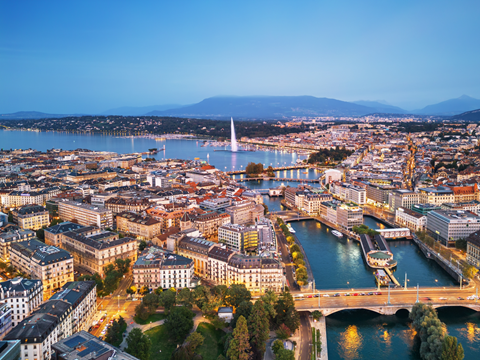
Following the last round of INC talks in South Korea, the French government recently shared a statement of ambition supported by 95 countries, calling on all INC members to conclude an ‘ambitious, universal and effective’ treaty at the upcoming INC-5.2 negotiations taking place in Geneva in August. We take a closer look at the Nice ‘Wake Up Call’ statement and what to expect in the next round of negotiations.
The statement of ambition in Nice calls for the adoption of a global target to reduce the production and consumption of primary plastic polymers to sustainable levels, to be regularly adjusted with a view of enhancing the level of ambition; an obligation for Parties to report on their production, imports and exports of primary plastic polymers; and to take measures across the full lifecycle of plastics to achieve the global target.
It asks for a ‘legally binding obligation to phase out the most problematic plastic products and chemicals of concern in plastic products’ and emphasizes the importance of a binding obligation to improve the design of plastic products and ensure they cause minimum environmental impact and safeguard human health. The statement also calls for an ‘effective and ambitious treaty’ that can evolve over time and is responsive to changes in emerging evidence and knowledge.
The EllenMacArthur Foundation has voiced its thoughts regarding the ambitions of the Nice statement, with Rob Opsomer, executive lead on Plastics and Finance at the Foundation, commenting:
“By having the statement focus on the entire lifecycle of plastics – from plastic production to products’ end-of-life management – we have a vital opportunity to accelerate the adoption of solutions that can work at scale.
The inclusion of ‘product design’, amongst the points key to reach an agreement, is especially impactful, alongside products and chemicals, the need to achieve sustainable levels of consumption and production, and the crucial role of robust means of implementation.”
Agnès Pannier-Runacher, minister of Ecological Transition, Biodiversity, Forests, Sea and Fisheries of France shared her views via a LinkedIn post, saying:
“A few weeks before the decisive negotiations on the international plastic treaty in Geneva, 96 countries have responded to France’s call to redouble their efforts in preparing for the negotiations.
As a reminder, 12 million tons of plastic end up in our oceans every year. What’s at stake? Our ability to ban the most problematic plastics, regulate production, support the most vulnerable countries and protect the health of future generations. A clear message: no compromise on our ambition!”
The next round of INC negotiations (INC-5.2) is due to take place in Geneva, Switzerland from 5th-14th August 2025. The session will be preceded by regional consultations on the 4th August.
In November 2024 we heard from Marta Longhurst, Global Plastics Treaty Manager at the Ellen MacArthur Foundation about the INC-5 negotiations, arguing that governments should unite and seize a historic opportunity to tackle plastic pollution. Longhurst stated that progress would require commitments to take action to reduce plastic production and cut down on primary plastic polymers, rather than relying solely on recycling and improved waste management.
The following month Victoria Hattersley spoke with Eirik Lindebjerg, Global Plastic Policy Lead at WWF as part of our Packaging Europe podcast series, discussing what to expect in the coming months and which questions still urgently need to be addressed.
If you liked this story, you might also enjoy:
The ultimate guide to the Packaging and Packaging Waste Regulation in 2025
How are the top brands progressing on packaging sustainability?
Everything you need to know about global packaging sustainability regulation in 2025
The key to increasing the use of reusable packaging in supermarkets













No comments yet